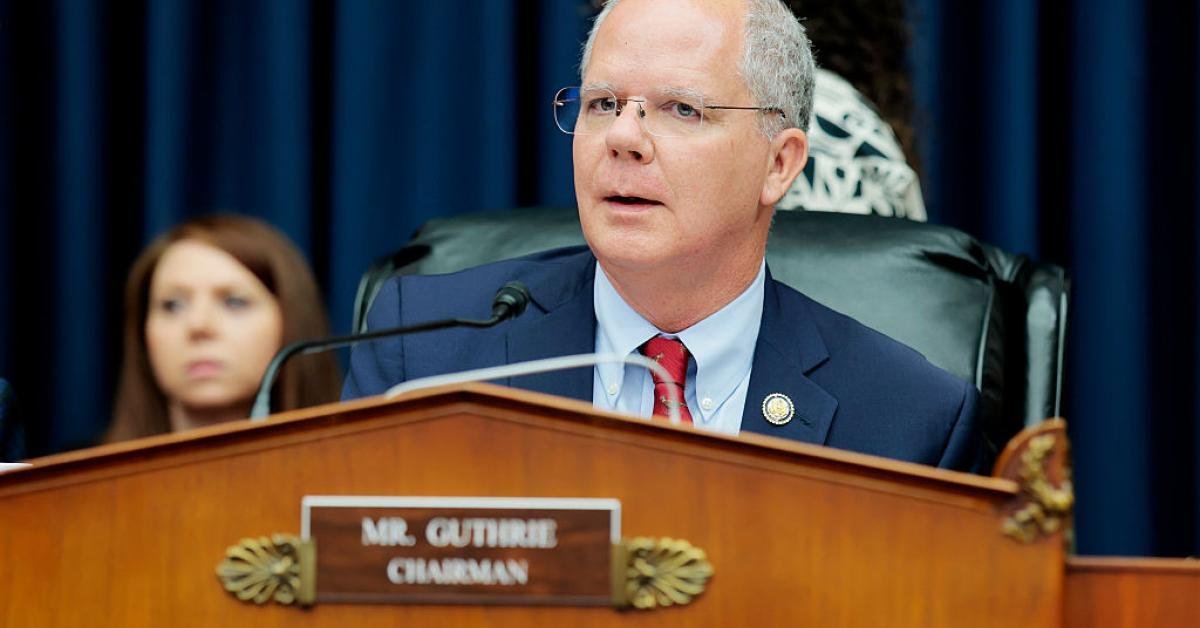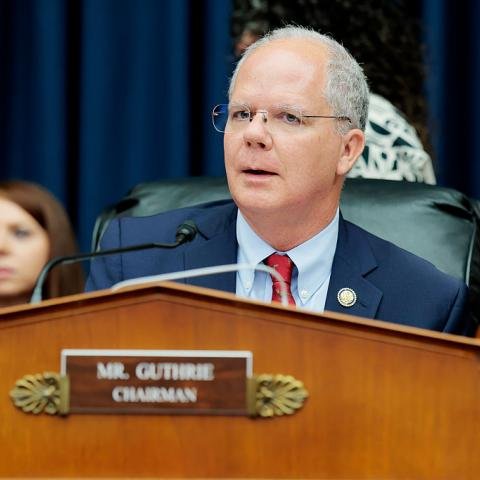
House Republicans sparred aggressively with Democratic lawmakers in a tense meeting this week of the Energy and Commerce Committee, insisting that their planned revisions to Medicaid were intended to stabilize the program and would not remove millions of recipients, including those who are disabled from the program.
During the meeting, House Democrats, notably Rep. Nanette Barragán, D-Calif., displayed graphics of disabled persons they claimed would lose medical coverage under the proposed changes, as well as images highlighting the rates of Medicaid reliance in the districts the Republican members of the committee represented. Disabled persons also protested the hearing.
At issue are planned revisions to Medicaid that may come as part of the Republicans’ “big, beautiful bill.” The Energy and Commerce Committee faces the task of finding $880 billion in savings over 10 years in their portion of the bill. The Congressional Budget Office estimates that the Medicaid portion of their section will save $625 billion and that the panel will likely exceed the $880 billion target for total savings, according to The Hill.
On the downside, the CBO estimated that the changes would lead to 10.3 million people losing Medicaid coverage by 2034 and that 7.6 million would ultimately be left uninsured. Democrats didn’t mention that the same study shows that half of that estimate comes from recipients without verified citizenship or those who may lose coverage over work requirements, which will not take effect until 2028.
Political theater: The victims who aren’t
Most of the GOP’s planned reforms involve changes to the eligibility requirements for the program and Democrats have seized on the worst theoretical outcomes to voice their opposition.
Ahead of the markup, Energy and Commerce Chairman Rep. Brett Guthrie, R-Ky., released the text of the legislation and a statement rejecting Democratic concerns as part of a “fear campaign.” Indeed, most of the more vitriolic Democratic claims do not appear to survive scrutiny of the actual text.
“This bill refocuses Medicaid on mothers, children, people with disabilities, and the elderly—not illegal immigrants and capable adults who choose not to work. It is reckless that my colleagues on the other side of the aisle claimed an artificially high number in alleged coverage loss just so they can fearmonger and score political points,” he said.
During the Tuesday markup of the Energy and Commerce panel’s portion of the bill, Democrats pointed to select parts of those CBO projections as a basis to warn about the prospect of millions losing coverage. Left-wing opposition during the markup included considerable political theater, such as the display of images of disabled persons whom they asserted would lose coverage under the plan.
Republicans bring the receipts, but they may not matter
Republicans ardently disputed those assertions, with multiple members of the committee working to clarify their proposals and their impacts while on the record. Barragán, for her part, specifically warned that the bill “cuts at least $715 billion from healthcare, and we’re talking about 13.7 million people being kicked off of Medicaid.” Her figure included the CBO estimate and a projected impact of the expiration of Affordable Care Act subsidies.
“The bottom line is people are going to lose benefits. People are going to be cut off of Medicaid, and that is not a good thing,” she added. We have heard everything from, oh, millionaires are on Medicaid… I had a constituent, many people who were on Medicaid, which meant they couldn’t earn more than $2,000 a month… Do you really think millionaires are getting income that’s less than $2,000 a month?”
“That doesn’t happen. That is not going to happen, but they’re finding every which way they can to kick people off Medicaid,” Barragán said. “And in the next conversation, we will talk about the new requirements about checking in every six months.”
The text Guthrie released would require the states to redetermine the eligibility of plan recipients every six months, beginning in October of 2027.
During the Tuesday hearing, Rep. Morgan Griffith, R-Va., stated that “[w]ork requirements only apply to Medicaid expansion. Therefore, by definition, work requirements do not apply to the disabled. They’re exempt. They don’t have a work requirement.”
Specifically, the bill addresses “personal accountability” and “community engagement” requirements for Medicaid through state plans. The Affordable Care Act allowed for states to expand Medicaid to persons receiving up to 138% of the poverty level. The proposed standards would require recipients to work at least 80 hours a month or complete the same amount of community service. Alternatively, spending 80 hours in a work program or half-time participation in an educational program would also fulfill the requirements. The bill allows states to provide exceptions for “short-term hardship events.”
An inconvenient truth
Former House Speaker Newt Gingrich observed the proceedings and accused the Democrats of “acting with typical dishonesty,” saying “[t]hey are holding up pictures of people supposedly on Medicaid, suggesting they won’t get health care anymore if the Republican bill passes. Yet the pictures of kids and people with disabilities are NOT impacted by the bill.”
The bill, in fact, includes mandatory exceptions to the personal accountability and community engagement requirements for persons under the age of 19, pregnant women, and those individuals listed under Section 1902 of the Social Security Act, which includes the disabled. These people represent the purported victims of the bill, according to the Democratic narrative.
Addressing Barragán, Rep. Buddy Carter, R-Ga., said “[t]he gentlelady knows perfectly well that that is not true. That it is not kicking 13.7 million people off of Medicaid. That is simply not true and the gentlelady knows that.”
“This is nothing more than fearmongering. It’s nothing more than misleading the public. What we are doing here is stabilizing this program,” he insisted. “We are making sure that no illegals are gonna be on this program. We’re making sure that people aren’t registered in more than one state. We’re making sure that there are going to be work requirements.”
Creating images of a heartless Republican administration and using health care and Social Security as a nerve center is nothing new. During the 2012 presidential election, former Sen. Mitt Romney, R-Utah, was pilloried by stories alleging that greed motivated his healthcare plan. Rep. Alan Grayson, D-Fla., called it a “tax cut for billionaires.”
That message was perhaps best displayed in an infamous political advertisement from a far-left organization depicting a lookalike former Rep. Paul Ryan, R-Wis., who was Romney’s vice presidential running mate in 2012, actually throwing a wheelchair-bound senior citizen over a cliff.
Republicans who want to pass this bill have an uphill battle, given the sensitive nerve such talk touches. It may not be factual, but it hurts. Time will tell whether lawmakers will decide to side with cold, hard facts, or instead cater to easily-understood but hard-to-prove fears.




